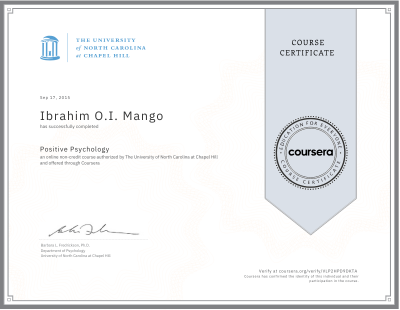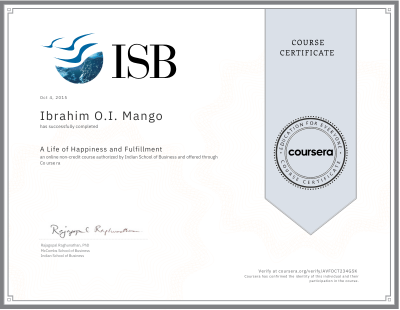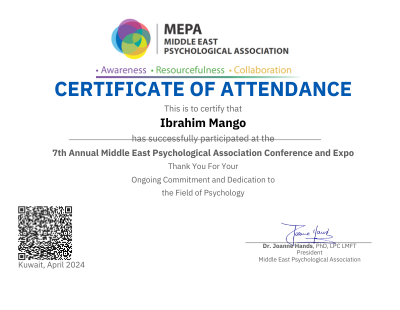Life is filled with hurdles, both big and small. Whether you're navigating a personal challenge, facing professional obstacles, or pushing yourself toward a long-term goal, setbacks can feel disheartening. But what if you could turn every obstacle into an opportunity? The answer lies in cultivating a growth mindset — the belief that intelligence and abilities are not fixed but can be developed through effort, persistence, and learning.
In this blog, we'll explore the importance of a growth mindset, why embracing challenges is crucial for success, and provide practical strategies for developing a mindset that allows you to thrive through setbacks and challenges.
What Exactly Is a Growth Mindset?
A growth mindset is the belief that your abilities, intelligence, and talents can be cultivated over time through dedication, hard work, and resilience. It is the opposite of a fixed mindset, where people believe their skills and intelligence are static and unchangeable. Carol Dweck, a pioneering psychologist, defined these two mindsets and highlighted how each one affects the way we approach challenges and setbacks.
People with a growth mindset see failure as a learning experience and a necessary part of their growth. They understand that mastery takes time and that mistakes are stepping stones on the path to improvement. This mindset leads to greater motivation, perseverance, and a willingness to face challenges head-on, as opposed to feeling defeated by them.
Those with a fixed mindset, on the other hand, are more likely to shy away from challenges or avoid tasks that could expose their limitations. They may give up easily or avoid new situations where they could fail. A growth mindset helps you see challenges as opportunities for growth, where every experience—whether positive or negative — is valuable for improvement.
Why Embrace Challenges? The Hidden Opportunities They Offer
While facing a challenge can be daunting, it is often the very thing that propels us toward personal growth and self-discovery. Challenges push you out of your comfort zone and test your limits, which can help you expand your potential. Comfort zones are where you remain stagnant, but stepping outside of it is where true growth happens.
When you embrace challenges, you unlock new opportunities to develop new skills, expand your knowledge, and build the resilience needed to tackle future obstacles. Instead of avoiding the difficult things in life, face them head-on and ask yourself: What can I learn from this situation?
For instance, imagine a challenging situation at work, such as managing a difficult project. Rather than focusing solely on the difficulty, consider it an opportunity to refine your problem-solving skills, develop your leadership abilities, and improve your emotional intelligence as you navigate tough interactions with your team. By taking the challenge on, you increase your capacity to succeed in similar situations in the future.
Challenges also bring a growth mindset to life by offering chances for personal transformation. For example, facing a significant personal setback can reveal deeper strengths or hidden potential you didn’t know you had. By embracing these challenges, you build resilience, mental flexibility, and the courage to keep pushing forward, even when things get tough.
Turning Setbacks Into Opportunities for Growth
Setbacks are inevitable. They may occur when a project fails, you don’t get the promotion you wanted, or you face personal difficulties. However, a growth mindset allows you to turn setbacks into learning opportunities rather than viewing them as failures. How you react to setbacks shapes your path forward.
The key is to reframe how you view failure. Instead of seeing setbacks as an indication that you’re not good enough or that you should give up, view them as opportunities to learn and grow. Every setback offers valuable feedback, whether it’s about your approach, your skills, or your perspective. This feedback helps you course-correct and improve.
For example, let’s say you’ve launched a business initiative that didn’t meet your expectations. Instead of being discouraged, take a step back and analyze what went wrong. Was it a lack of preparation? Did you misjudge your market? What could you have done differently? These reflections will not only provide insights for future decisions but will also make you a more strategic and resilient entrepreneur.
Another example is dealing with a personal setback, like a relationship challenge. Ask yourself: What can I learn about my own needs and boundaries from this experience? How can I improve my communication or approach in future relationships? Through this process, setbacks can shift from obstacles to valuable lessons, and with each one, you’ll come out stronger, more aware, and more capable of facing the next challenge.
Practical Tips for Cultivating a Growth Mindset
Now that we understand the importance of a growth mindset and how to embrace challenges and setbacks, let's explore practical strategies to help you develop and maintain a growth mindset. These tips will help you cultivate the habits and mindset necessary for continuous improvement and success.
1. View Challenges as Invitations to Grow:
One of the most powerful shifts you can make is to start seeing challenges not as burdens, but as invitations to grow. Instead of avoiding difficult situations, approach them with curiosity and excitement about the potential for personal growth. By viewing challenges this way, you begin to reframe your mindset and take ownership of your development.
Whenever a challenge arises, take a moment to reframe the situation: “This is an opportunity to improve. What can I learn from this?” This simple mindset shift can help you see obstacles as exciting opportunities for learning and growth, rather than hurdles to overcome.
For example, imagine you're given a challenging project at work that is outside your expertise. Rather than feeling overwhelmed, embrace it as a chance to learn new skills and expand your professional capabilities. You’ll grow both personally and professionally by facing it with a positive attitude and openness to learning.
2. Ask the Right Questions to Keep Evolving:
The questions you ask yourself during tough times can be a powerful tool for growth. Instead of focusing on what went wrong, ask empowering questions that can drive learning and improvement. Instead of “Why did I fail?”, ask yourself, “What can I do better next time?” or “What’s one lesson I can take away from this experience?”
These questions shift your focus from failure to growth and open up opportunities for self-improvement. They allow you to view every setback as an opportunity to learn and evolve, helping you become more resilient over time.
When you ask questions that encourage improvement, like “How can I approach this differently?”, you train yourself to think in terms of solutions rather than problems. This way, your mindset evolves from simply overcoming obstacles to proactively seeking out continuous growth.
3. Embrace the Process, Not Just the Results:
Too often, we focus solely on the end goal — whether it’s reaching a milestone, completing a project, or achieving success. While it’s important to have goals, it’s equally important to embrace the process of getting there. The growth mindset encourages you to appreciate every step along the way and see each experience as part of the larger learning process.
Focus on the journey, not just the destination. Each small step you take contributes to your personal and professional development. Whether you’re learning new skills or refining old ones, each action is an opportunity to improve and grow.
For instance, if you're working toward a fitness goal, don’t just focus on reaching the finish line. Celebrate the small victories—whether it’s a stronger workout, better eating habits, or more energy throughout the day. Embrace the learning process and appreciate how each moment contributes to your overall success.
4. Surround Yourself With Like-minded Growth Seekers:
The people you surround yourself with can have a profound impact on your mindset. If you want to cultivate a growth mindset, seek out individuals who share similar values and beliefs.
Being around people who are also committed to growth and learning can motivate you, encourage you to push through challenges, and offer valuable feedback when you need it most. This could mean joining a mastermind group, collaborating with colleagues who challenge you, or finding mentors who inspire you to be better.
Surrounding yourself with positive influences creates a support network that will push you forward, even when you feel like giving up.
5. Be Kind to Yourself During Tough Times:
Lastly, it’s important to practice self-compassion when facing setbacks. It’s easy to be hard on yourself when things don’t go as planned, but practicing kindness toward yourself can help you bounce back more quickly.
Remember, growth is a journey, not a destination. Mistakes and setbacks are inevitable — what matters is how you respond to them. Instead of beating yourself up for perceived failures, acknowledge that you’re doing your best and that learning from setbacks is part of the process.
Being kind to yourself during tough times helps maintain your emotional resilience and ensures that you keep pushing forward.
Conclusion
Adopting a growth mindset can open doors to incredible personal and professional transformation. By welcoming challenges as opportunities, viewing setbacks as lessons, and committing to small, consistent changes, you can shift your perspective to one of growth and resilience.
Remember, growth isn’t about perfection or rushing to the finish line. It’s about learning, adapting, and celebrating progress along the way. Each step forward — no matter how small — brings you closer to becoming a more confident, capable version of yourself.
Ready to take action? Start by identifying one challenge you’ve been avoiding or a recent setback that’s been holding you back. Write down what it can teach you and the next step you’ll take to move forward. Your transformation begins with that first step — take it today.
FAQs
1. How can I maintain a growth mindset in the face of repeated failures?
Focus on analyzing each failure objectively, identifying specific lessons, and setting actionable steps for improvement. Celebrate small wins to keep your motivation high.
2. What daily habits can help reinforce a growth mindset?
Practice self-reflection, set micro-goals, and use affirmations like “I can improve with effort.” Regularly seek feedback to identify areas for growth.
3. How do I handle criticism without losing motivation?
Reframe criticism as constructive feedback. Ask, “What can I learn from this?” Use it as a tool to refine your skills and grow rather than taking it personally.










